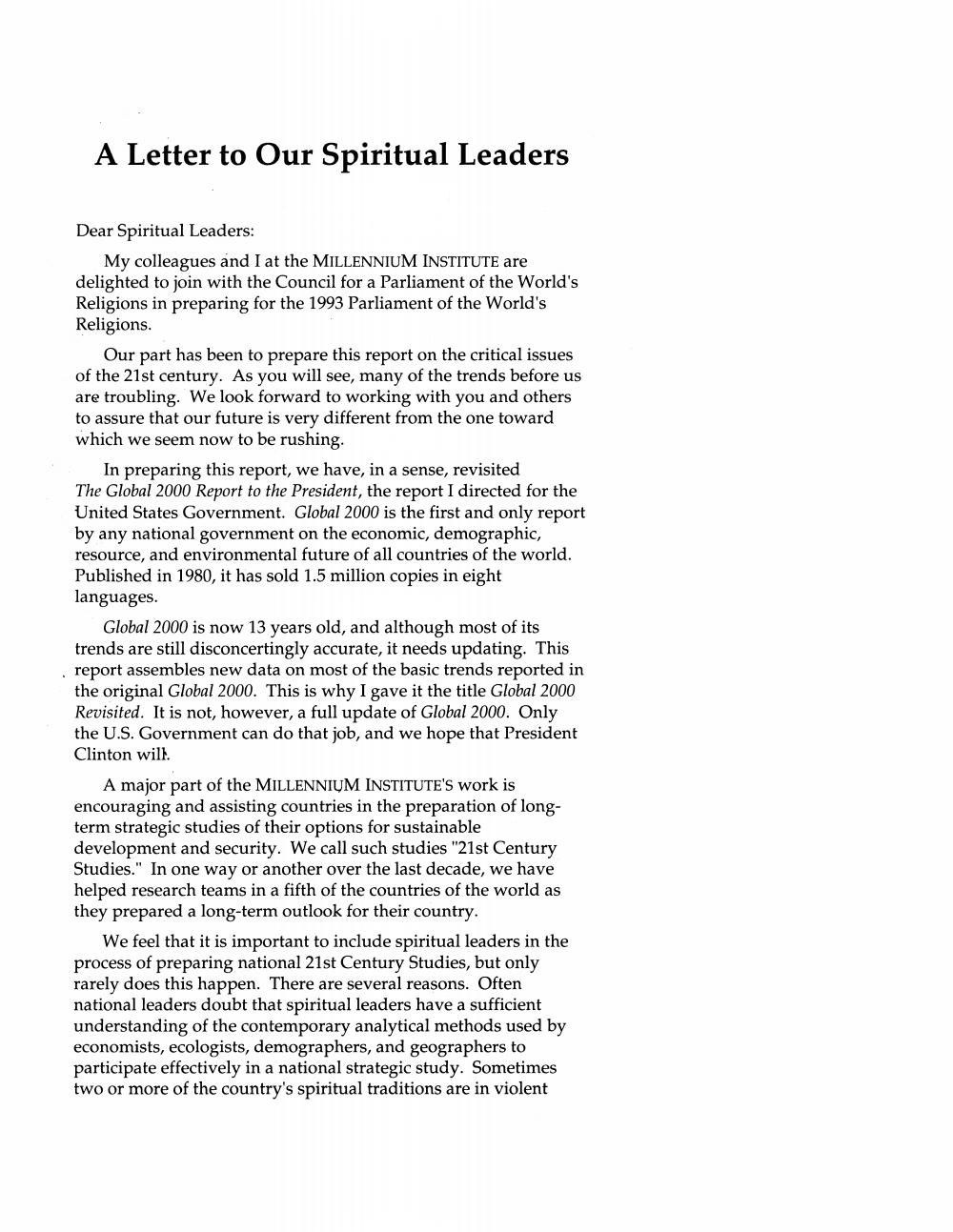________________ A Letter to O tual Leaders Dear Spiritual Leaders: My colleagues and I at the MILLENNIUM INSTITUTE are delighted to join with the Council for a Parliament of the World's Religions in preparing for the 1993 Parliament of the World's Religions. Our part has been to prepare this report on the critical issues of the 21st century. As you will see, many of the trends before us are troubling. We look forward to working with you and others to assure that our future is very different from the one toward which we seem now to be rushing. In preparing this report, we have, in a sense, revisited The Global 2000 Report to the President, the report I directed for the United States Government. Global 2000 is the first and only report by any national government on the economic, demographic, resource, and environmental future of all countries of the world. Published in 1980, it has sold 1.5 million copies in eight languages. Global 2000 is now 13 years old, and although most of its trends are still disconcertingly accurate, it needs updating. This report assembles new data on most of the basic trends reported in the original Global 2000. This is why I gave it the title Global 2000 Revisited. It is not, however, a full update of Global 2000. Only the U.S. Government can do that job, and we hope that President Clinton will. A major part of the MILLENNIUM INSTITUTE's work is encouraging and assisting countries in the preparation of longterm strategic studies of their options for sustainable development and security. We call such studies "21st Century Studies." In one way or another over the last decade, we have helped research teams in a fifth of the countries of the world as they prepared a long-term outlook for their country. We feel that it is important to include spiritual leaders in the process of preparing national 21st Century Studies, but only rarely does this happen. There are several reasons. Often national leaders doubt that spiritual leaders have a sufficient understanding of the contemporary analytical methods used by economists, ecologists, demographers, and geographers to participate effectively in a national strategic study. Sometimes two or more of the country's spiritual traditions are in violent




